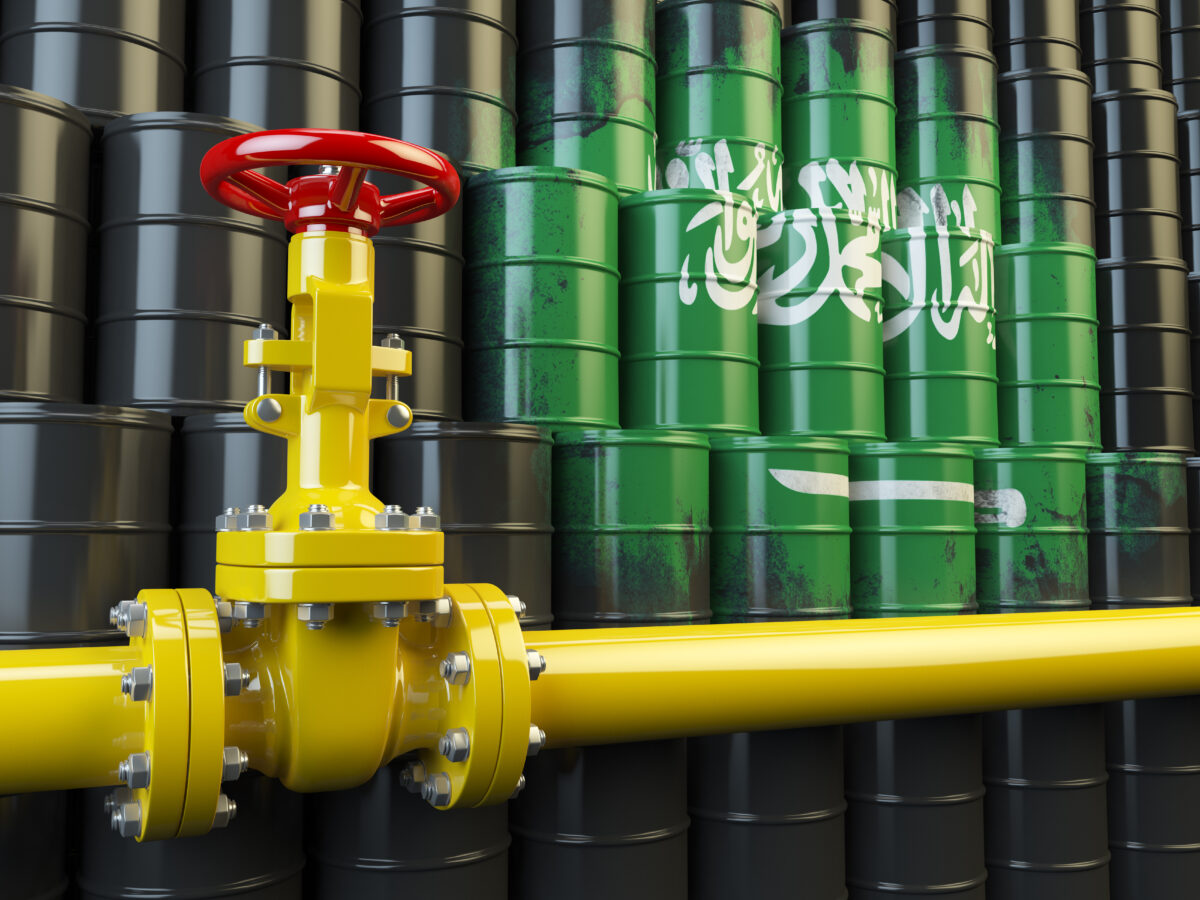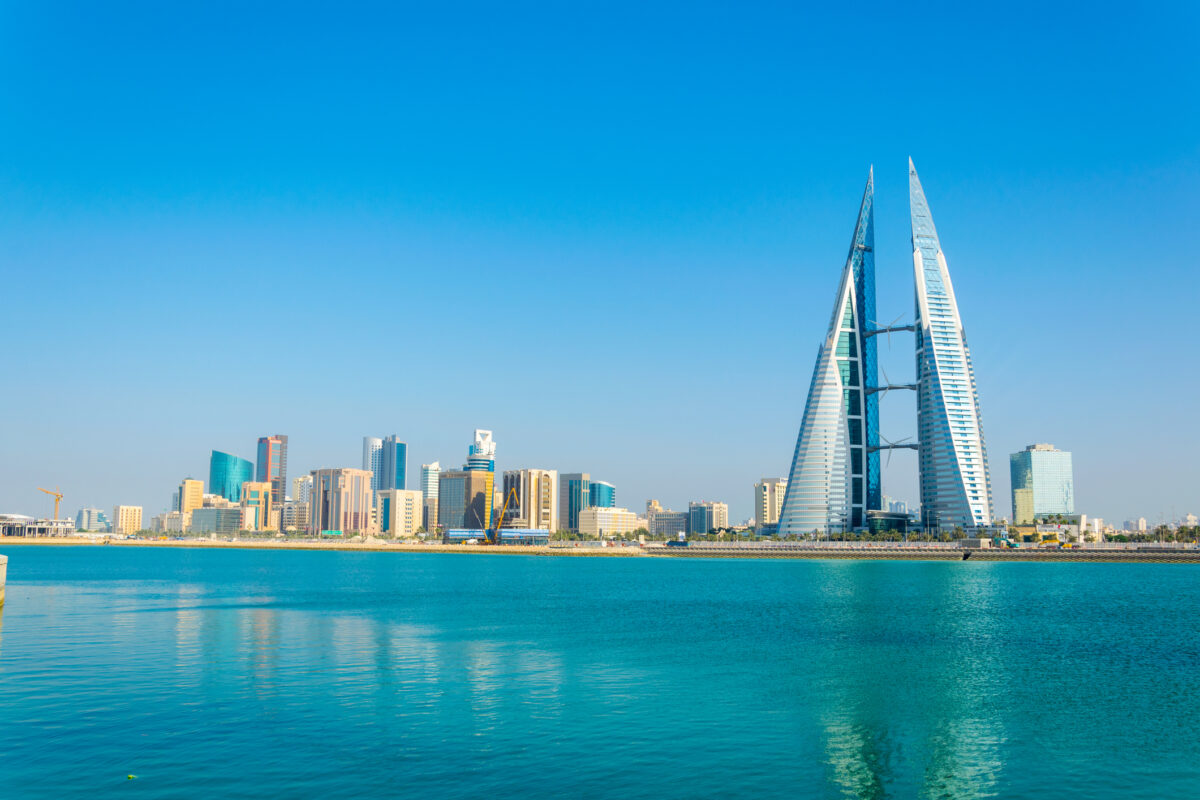The Middle East’s Gulf Cooperation Council, or commonly known by its acronym ‘GCC’, is known throughout much in the world collectively as an oil producing region. This brought with it both wealth and large-scale economic development that has attracted people from across the world to help support its efforts. However, in today’s world, how does that relate with its current economic development national strategies?
STRATEGIES ARE BEING IMPLEMENTED

The GCC is a political and economic alliance consisting of six members – Saudi Arabia, Bahrain, Kuwait, Qatar, the United Arab Emirates (UAE), and Oman. A case in point for economic development strategies is in Saudi Arabia, who is a member of the Organization of the Petroleum Exporting Countries, or commonly known as OPEC (its other fellow GCC members that are part of OPEC are Kuwait and the UAE). After first discovering oil in Saudi Arabia in 1938, the Kingdom’s economy quickly transformed. Today, according to OPEC, Saudi Arabia possesses around 17 per cent of the world’s proven petroleum reserves, where oil and gas sector accounts for about 50 per cent of gross domestic product (GDP), amounting to 70 per cent of export earnings.

For those who have been to the GCC region the past few years they would have seen logos throughout their respect countries such as Saudi Vision 2030. But what exactly is that they might ask? It is the national economic transformation and diversification strategies of their respective countries. All of the six GCC have their own variants of their wider strategies of some sort (Bahrain Economic Vision 2030, Kuwait Vision 2035, Qatar National Vision 2030, Oman Vision 2040 and Saudi Vision 2030). The UAE, for instance, not only has other national initiatives such as UAE Centennial 2071 and UAE Vision 2021 but also variants in their respective Emirates such as Abu Dhabi Vision 2030. In essence, using Vision 2030 as an example, by the year 2030 the respective strategy aims to achieve its main objective.
For the most part, despite each tailored to their respective nations, they overall have a strategy where they aim for their economies to achieve some of the following aims:
- Diverse economic sectors – To have economies that are not reliant on just one but various sectors which include the likes of tourism, transportation, tech and fintech
- Drive Innovation and Entrepreneurship – Promote innovation in the future economy and driving much of that to be developed with local talent and ideas; also promoting entrepreneurship to drive these ideas
- Digital transformation – Digital not only drives sectors such as tech and fintech but also wider adoption of technology to prepare for a future digital world (COVID-19 further justified the importance of strong technology infrastructure globally)
- Job Creation and Economic Growth – The pillars of economic development are job creation and economic growth in general; the various GCC strategies embody them
As oil-producing nations, the GCC, just like the rest of the world, realise that commodities such as oil are finite. In addition, the price of oil in recent memory has also been volatile. For those who have been to the GCC region they have seen the various construction and other launches and developments of much of the themes. For instance, in Saudi Arabia the large-scale economic cities that are being developed to implement Saudi Vision 2030 are truly impressive – from the likes of NEOM (a planned cross-border city in the Tabuk Province of northwestern Saudi Arabia where it will incorporate smart city technologies and also function as a tourist destination) to King Abdullah Financial District (KAFD) in Riyadh.
SUCCESS STORIES IN THE REGION AND GLOBALLY

As much of the various national strategies in the GCC are currently being implemented, there have been clear successes of economic development and diversification. For instance, Bahrain, who has been a regional financial services hub in the wider Middle East and North Africa (MENA) even before the launch of Bahrain Economic Vision 2030 in October 2008 by the King of Bahrain, His Majesty King Hamad bin Isa Al Khalifa, was the first GCC country to begin diversification efforts. Much of their success in this regard is due to their financial services sector.
Another example is Dubai. Unlike the rest of the the GCC, Dubai was not as much of a major oil and gas player and had to leverage and develop other sectors as part of its own economic development and growth. From launching Emirates Airlines to creating impressive infrastructures and areas such as the world’s tallest tower, the Burj Khalifa, and Dubai Mall and even the area they are based called Downtown Dubai to the world’s largest man-made marina (Dubai Marina), Dubai’s growth on a global stage is beyond impressive. Their economic diversification efforts have allowed Dubai to be the following: Dubai International Airport (DXB) being the busiest hub for international passengers in 2019, major hub for cargo (both for air and shipping with the Jebel Ali Port), a destination that last year attracted. In financial services it has its international financial centre, known as Dubai International Financial Centre (DIFC).
The 500 largest companies in the world by revenue shows two-fifths have offices for MEA operations, whereby almost two-thirds of that have their regional headquarters in Dubai. In terms of financial services, American companies with regional offices and/or offices in Dubai include CitiBank, JP Morgan Chase, HSBC, Bank of America Merrill Lynch, Mastercard, Visa, Google, Facebook, and Uber – to name a few. Also, Dubai Expo 2020 (due to the pandemic was rescheduled to launch next year in October 2021) will showcase the growth of not only Dubai but the UAE and region as a whole.
Neighbouring Abu Dhabi also has shown its efforts in economic diversification despite oil still being a key part of its economy. Examples includes its push for tourism, cultural and educational attractions, such as being host to world-renowned attractions and centres for learning such as New York University (NYU) Abu Dhabi, Ferrari World, The Louvre Abu Dhabi, Sorbonne University Abu Dhabi – to name a few. In terms of financial services, it has its international financial centre known as Abu Dhabi Global Markets (ADGM), which recently celebrated its five-year anniversary.
THE ROLE OF FINANCIAL SERVICES, FINTECH AND WIDER DIGITAL ECOSYSTEM WITH NATIONAL STRATEGIES IN THE GCC

As highlighted, digital transformation plays a key theme throughout various GCC national strategies. For example, within Saudi Vision 2030, on April 24, 2017, the Council of Economic and Development Affairs (CEDA) initially launched ten delivery programs to realize Vision 2030; one of those is the Financial Sector Development Program (FSDP). According to the Vision 2030 website, “The FSDP’s role is to create a diversified and effective financial services sector to support the development of the national economy, diversify its sources of income, and stimulate savings, finance, and investment.” As a result of FSDP with its implementation, clear evidences of that include for instance Fintech Saudi, which was launched by the Saudi Arabian Monetary Authority ‘SAMA’ (it recently changed its name to the Saudi Central Bank but retains the SAMA acronym) in April 2018. Fintech Saudi acts as a catalyst for the development of the financial service technology / fintech industry. They recently ran their latest and successful Fintech Saudi 20 tour (due to the pandemic it went virtual).
Over in the UAE’s Dubai they have Smart Dubai 2021. According to its website, after announcing its roadmap, Dubai will aim to be a world-leading city by 2021. This, “In celebration of the nation’s golden jubilee, by promoting technological advances that benefit the city’s people; it’s economy; and its resources.” Much of Dubai’s services are already digital – which include from applying for residency visas across its various stages to even parking fines – where much can be done from the touch of one’s mobile device. Overall, the UAE has been a leader in digital transformation and ranks first in the Arab World and 12th globally according to the IMD’s World Digital Competitiveness Ranking 2019 report.
Other examples of adaptation and implementation of fintech has been clear. A recent headliner has been Oman where The Central Bank of Oman (CBO) launched the Fintech Regulatory Sandbox (FRS) initiative this month, where participants can apply to live test their innovative Fintech solutions, that are enabled by new technologies, in a safe environment under the supervision of the CBO. Also, as mentioned previously, Bahrain has developed, which from its financial services hub, a strong fintech ecosystem as well. Finally, in recent memory there have been the growth of various fintech and/or tech accelerators and hubs throughout the GCC – from DIFC Fintech Hive to Bahrain Fintech Bay to Qatar Fintech Hub to Hub 71 in ADGM.
It is worth noting the strength and size of the financial services industry in the GCC. For example, in the banking sector, the top ten largest banks in the GCC according to research from The FinTech Times (including Qatar National Bank (QNB), Emirates NBD, First Abu Dhabi Bank (FAB Bank), and National Commercial Bank (NCB Bank)) have assets worth over $1 trillion.
The clear visible initiatives coming into fruition showcase the growth and economic development diversification happening in the GCC. Fintech, alongside other sectors such as tech, are playing a key role in that, as it has done across much of the world.




